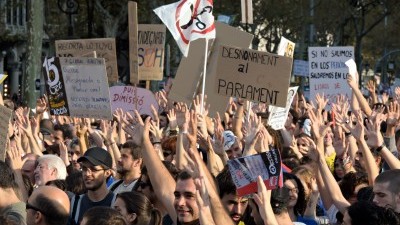Lessons Learned from the German Democratic Republic – Lorenz-von-Stein Prize for Doctoral Dissertation on Political Protests

How and under which circumstances do people in authoritarian regimes organize themselves for political protests? How do opposition groups become mass protests destabilizing governments? Dr. Katrin Paula investigated these questions in her doctoral dissertation at the Center for Doctoral Studies in Social and Behavioral Sciences (CDSS) at the University of Mannheim. The work of the social scientist is interdisciplinary and relates to Political Science and Social Sciences. By using the example of the German Democratic Republic, Paula shows the conditions under which censoring and other repressive measures strengthen the protest movement instead of stabilizing the regime. The 35-year-old researcher also connects her findings to political protests that can be observed today, e.g. in Hong Kong or Belarus. “Democracies are increasingly being criticized for their information policies”, Paula says.
The Lorenz-von-Stein-Gesellschaft e. V. honors Dr. Katrin Paula for the best Social Sciences dissertation completed at the University of Mannheim in 2019. Since 1999, the organization supporting the Mannheim Centre for European Social Research honors a doctoral dissertation in Political Science, Social Psychology or Sociology. The Lorenz-von-Stein prize is worth 1,000 euros.
The title of Dr. Katrin Paula’s dissertation is “Micro-Dynamics of Mobilization: Evidence from the German Democratic Republic.” The doctoral dissertation was supervised by the political scientist Professor Sabine Carey and Professor Thomas Gautschi, a sociologist.
